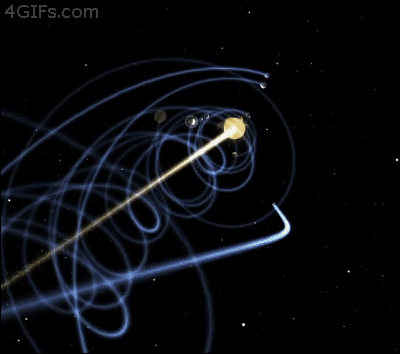My curiosity has always been high when it comes to the universe. I just see things a little differently and am trying to connect my thoughts with current theory. For example: I don't care for the idea of gravity. Some seemingly magical force at the center of all things that somehow naturally attracts other objects.
Granted this is purely theoretical, but I wonder if it is more about atmospheric pressure than gravity. I akin it to a snowball. On a cold day the snow is in a neutral state on the ground until I change the atmospheric density around by picking it up and smashing it into a ball. I release the additional atmospheric pressure from the snow, and it keeps its form and, is back in it's original atmosphere. So the original atmosphere has no real effect on the newly formed snowball unless the temperature of the original atmosphere increases causing the snowball to melt.
One of my observations that is leading me to this conclusion is that it seems like when space is described on a larger scale everything is in a bubble. You have physical planet earth surrounded by an atmosphere, which is surrounded by electromagnetic field, which is surrounded by particles being dispersed by the sun, which is surrounded by the atmosphere provided by the Milky Way Galaxy, witch seems to be in a bubble itself. So it appears to me that atmospheric density is what allows matter to either be formed and maintained in a certain state or destroyed.
I see gravity more as increasing and decreasing atmospheric pressures that if increased will allow matter to form and if slowly released will allow matter to maintain it's form. As atmospheric pressure decreases the matter will begin to fall apart. This is just a small part of a much larger theory that has the potential to explain many more things.
I don't know for sure, but I would say that I see the universe as more fluid than solid. If that makes any sense. More like Jello than air with a bunch solid objects in it.

